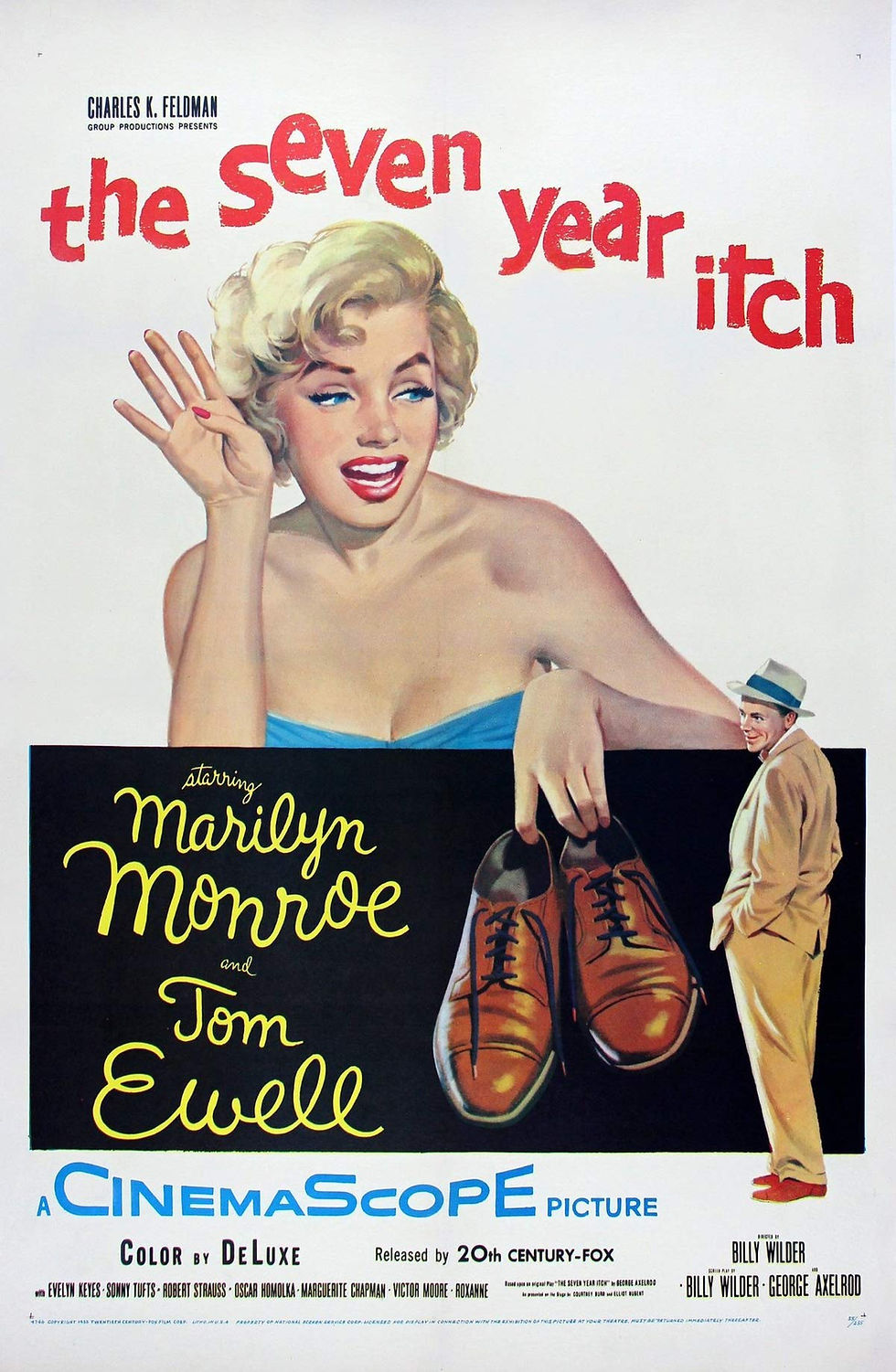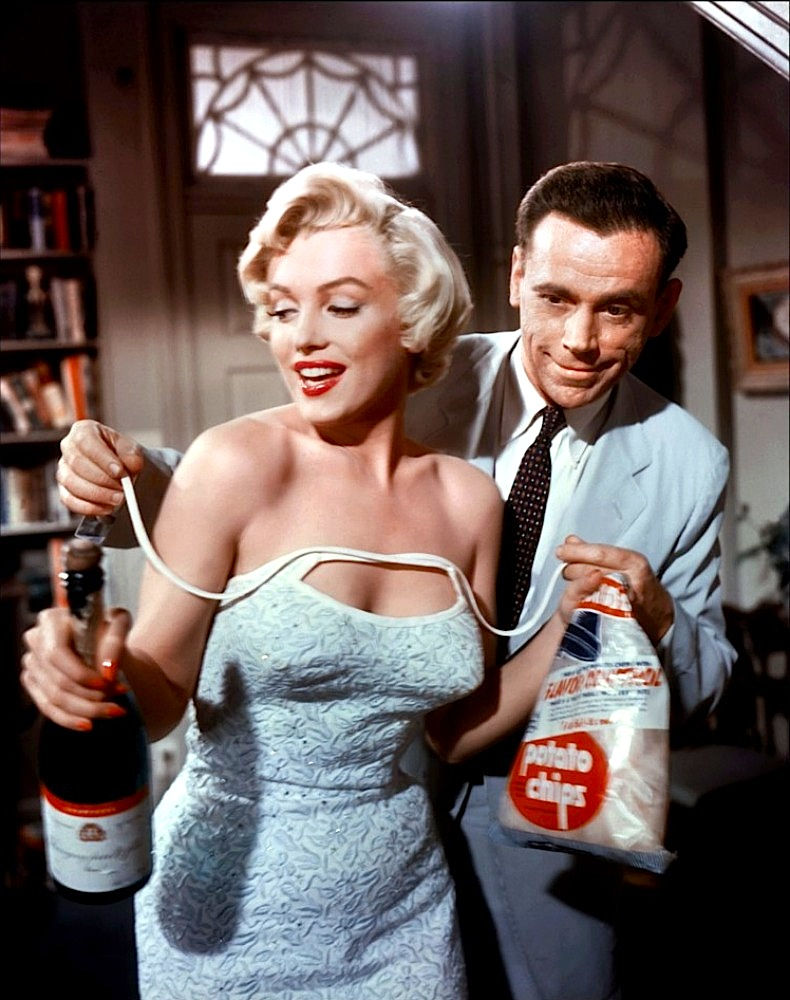Cinema Revisited: The Seven Year Itch (1955)
- Aug 5, 2019
- 3 min read

Directed by Billy Wilder. Starring Marilyn Monroe, Tom Ewell, Evelyn Keyes, Oscar Homolka, Victor Moore, Donald MacBride, Carolyn Jones. Released June 3, 1955. Running time: 105 minutes.
"The Seven Year Itch" appears to be the film that defines Marilyn Monroe's career. She is forever identified as the blonde airhead as she plays in this movie. People forget her range as an actress, including films like "Don't Bother To Knock," "Bus Stop," and "Niagara." That said, this Billy Wilder adaption of George Axelrod's hit play is indeed the quintessential 50s-era adult comedy. While the censors would never allow adultery to be presented on screen, rendering the original play's concept unusable, Wilder gets around that by featuring such dalliances in dream sequences where plain looking Tom Ewell imagines himself as irresistible to beautiful women, including Marilyn Monroe.

Ewell won a Tony for the stage version, so Wilder hired him for the movie (Walter Matthau was also considered). The studio wanted someone along the lines of William Holden or Gary Cooper, but Wilder thought the comedy worked best with a homely everyman rather than. handsome leading man. He was right.
The story deals with Richard Sherman (Ewell), an executive at a publishing company whose wife and son are visiting relatives in Maine for the summer because the weather is so incredibly hot. Of course Sherman needs to stay behind and work. He reads a manuscript his company is considering where a doctor claims married men get the "itch" after seven years to have extramarital affairs. This is his dilemma when a pretty girl (Marilyn, whose character is never given a name) movies upstairs and gets to know him as a friend. He imagines she is interested in him, but she is only interested in the fact that his apartment is air conditioned. At one point when he lunges at her, he is ashamed of himself, stating that it never happened before in his life. Marilyn responds, "happens to me all the time." She is unfazed by, and accepting of, this gesture.

This is the film containing the iconic scene where Marilyn Monroe stands on a grating and air pushes up her dress. Often people are surprised to discover that the picture they've seen does not appear in the movie. Only her legs and the dress going up are shown. Her full frame is not in the scene. Some studies claim that her marriage to Joe DiMaggio broke up because of this scene.
Now, in the 21st century, the narrative of "The Seven Year Itch" seems tame. But in 1955 it was edgy and titillating, although Billy Wilder would later state that he wished he had filmed it later on when censorship restrictions weren't so strict. Today the film is significant for featuring the iconic Marilyn in one of her most notable performances, and as a brilliant representation of 1950s kitsch, with all of the fashions and furnishings that so clearly represent that decade. It also shows another side of the ways and mores of that decade, far different than the conservatism by which it remains defined, even in popular culture.
Perhaps the most 50s thing the movie does is allow Ewell's character to remain chaste despite his fantasies and opportunities (which are well beyond the reach of a plain looking man like him). He concludes the film with the decision to join his wife and son in Maine, realizing his domestic status is far more attractive than any sexual freedom he might explore.
Critics responded well to the film upon its initial release, and moviegoers were delighted, the movie earning millions at the box office. Billy Wilder directed the film just after finishing his last for Paramount ("Sabrina"). He had wanted to shoot in black and white, but Fox, who had Marilyn Monroe under contract, had a stipulation that she only be filmed in color (of course Marilyn would make black and white movies in the future, including the classic "Some Like it Hot.")
While it is not quite the classic it is cracked up to be, "The Seven Year Itch" is a pleasant comedy with some clever ideas and a great cast. Marilyn Monroe has become so incredibly iconic in popular culture, it is natural to for anyone to see the movie that best defines her screen persona.
Comments